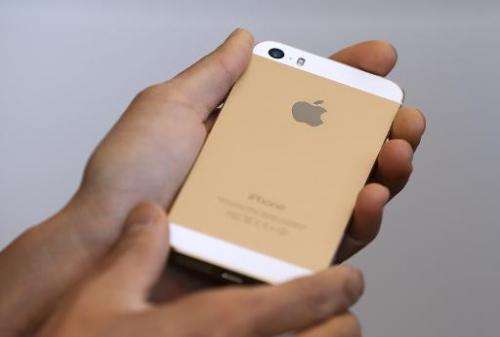For heads of state, a iPhone or Blackberry can be a trap

While heads of state have encrypted mobiles and other secure lines for work, many can't resist using regular smartphones for everyday life—making them susceptible to espionage.
On Wednesday, German Chancellor Angela Merkel called US President Obama demanding answers after reports Washington may have hacked her cell.
The White House, refused to say whether Washington's agents had intercepted her communications in the past, and Obama was forced to promise they would not do so in the future.
Amid growing outrage in Europe, the scandal spotlights how high-ranking officials use technology and, possibly, how reaching for a personal iPhone or Blackberry can expose their Achilles' heel.
The Der Tagesspiegel daily, citing anonymous government sources, said Merkel's allegedly tapped cell phone wasn't the encrypted one she uses in her official role as chancellor.
Rather, it claimed, it was the one she has as head of the country's CDU political party.
Some German reports, however, claimed the gadget was the leader's "official" mobile, which is supposed to be highly secure.
Several months ago, Germany's government stocked up on Blackberry Z10 models—priced at 2,500 euros each ($3,450 each)—equipped with special security mechanisms.
In France, high-ranking officials have encrypted Teorem cell phones exclusively built for the state by defense contractor Thales and which are believed to cost some 3,300 euros a piece.
Approved by the ANSSI national security agency, they even allow the secure transfer of material deemed "top secret."
Some officials also have access to a highly secure intranet and an inter-ministerial landline phone and fax network.
However, these systems are often seen as restrictive and slow by their users.
On a Teorem phone, for example, it takes up to 30 seconds to place a call due to security codes—and that can frustrate officials in an era of increasingly fast communications.
Hands off Gmail and Google
In an August 19 memo—after leaks by former US intelligence contractor Edward Snowden starting revealing the extent of American spying in Europe—the French prime minister's office reminded ministries about the importance of securing data.
Among other things, the memo specified that "the use of unapproved commercial smartphones must exclude the communication of sensitive information."
Furthermore, it said, all sensitive information, even that which is non-classified in nature, must be sent from terminals equipped with security systems approved by ANSSI.
People who own encrypted cell phones, be they politicians, company heads, lawyers or even journalists, "have at least one iPhone or Blackberry" on top of it, Robert Avril, founder of the firm Cryptofrance, told AFP.
The firm launched its first encrypted phones in 2008.
Despite all the training sessions these individuals receive, once back home such individuals tell themselves that hacking only happens to others, he said.
"We keep telling our clients not to have work-related conversations or send emails from their regular smartphones."
Politicians are particularly tough to convince, said Herve Schauer of CLUSIF, a French non-profit that brings together information security professionals.
"They have a really hard time understanding that they have to use encrypted phones, they're unaware of the risks," he said.
"They have several phones and are accustomed to using programs like Google or Gmail."
According to several cybercrime experts, former French president Nicolas Sarkozy was particularly reluctant to using his Teorem and his successor Francois Hollande is said to have held onto his personal smartphone once he took the reins.
On the other side of the Atlantic, Barack Obama won his battle with the Secret Service to hang on to his Blackberry within days of taking office, despite fears it was vulnerable to being hacked, and would give away his whereabouts.
Some also worried anything he writes could eventually be fodder for congressional investigations.
The extra bulky device is often seen on Obama's belt and he is sometimes pictured scrolling through his messages as he travels in his limousine.
The president often privately talks of how frustrated he is about the White House "bubble," which makes it very difficult to communicate with normal people or get unfiltered information from the outside world. Aides say his Blackberry is a way to escape that confinement.
The White House says the president's personal email address is strictly limited to a small list of senior officials and personal friends, but will not detail the encryption devices that are used to secure his communications.
However, emails the president sends are believed to be subject to the post-Watergate Presidential Records Act of 1978, which requires that a record be kept of White House communications.
© 2013 AFP




















